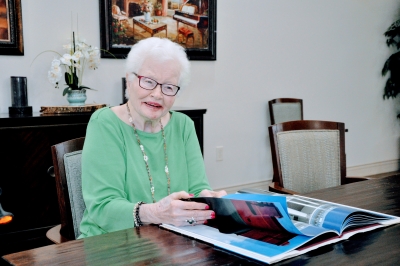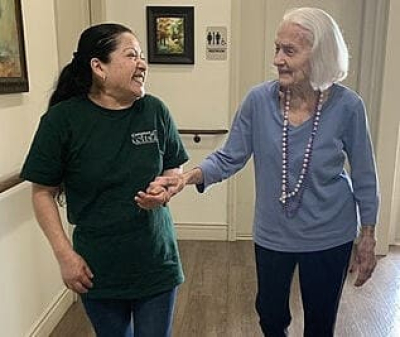Our last post “Questions to Ask While Touring a Memory Care Community” listed important questions to ask when touring communities for your loved one. In this post we are going to answer a couple of the questions for our community and explain important differences between
Our first and very important question is
Are you a State Licensed Community?
In the State of Texas Some Assisted Living Facilities are not required to be licensed. These include Group Homes and other Smaller Facilities that care for 3 or less residents. If you choose this type of an Alzheimer’s community, there is almost no oversight from the State, Food Safety controls by the Health Department or Life Safety requirements by the Fire Department.
There are no minimum staffing requirements for Unlicensed Care Facilities and Group Homes; often there is only One person to take care of all the residents care needs. Bathing, Dressing, Toileting, Cleaning, Cooking etc. Residents may sit in front of a T.V. all day for entertainment or remain inactive with no stimulating activities. Not to say that residents will be neglected, there are some great small unlicensed facilities. They are just not required to do any more than House and care for the residents. Residents whose needs increase may need to be moved to a specialized community, so this may not be the last time you move your loved one.
Evergreen Cottages is a State licensed community and in fact we hold 2 licenses.
Evergreen Cottages specializes in Memory care therefore we go the extra step to hold the Alzheimer’s licensure.
We are licensed by the State of Texas Health and Human Services Department as a 16 Bed Small Type B Assisted Living Community with a further Alzheimer’s Certification. Our Alzheimer’s license requires our Staff to be Specially Trained in Dementia Care. To uphold this license we must complete 16 hours of Dementia training for all staff upon hire and a minimum of 12 hours of continuing education on Alzheimer’s care annually. All our Staff and Caregivers are Certified and required to complete In service training Monthly. We hire the most caring people who are Certified Nurse Aides or Certified Medication Aides. Our Directors are Nurses LVN’s and RN’s Our Alzheimer’s License also allows us to have a secured community, meaning that the doors are locked down for the safety of our residents to prevent them from wondering off on their own and not knowing where they are, while preventing strangers to enter the facility. Visitors are greeted at the door.
We Structure Activities and residents are encouraged to participate in stimulating activities every day, including Mind Stimulating Games, Trivia, Dance, Tai Chi, Music and Sing Along and a variety of other craft making and dexterity activities. Unlicensed facilities are not required to do the same.
Evergreen’s Alzheimer’s license allows us to operate as an “Age in Place” community, which means that we are allowed to keep the resident until end of life. So once your loved one moves in they are always allowed to live with us unless the community determines it is medically unsafe to do so.
Not all communities hold both licenses. So if you are looking for a place for a loved one that has Alzheimer’s, Traumatic Brain injury or any related Dementia be sure to ask if that community holds both. You want to know if you will need to move your loved one again. It is very difficult for persons with dementia to handle moves so the less you need to move them the less confusing and more comfortable it will be for you, your family and most importantly your loved one.
By: Vanessa Trautwein RN is the operations manager at Evergreen Cottages. She is an expert in the field of Senior Care and can be reached by email This email address is being protected from spambots. You need JavaScript enabled to view it.




